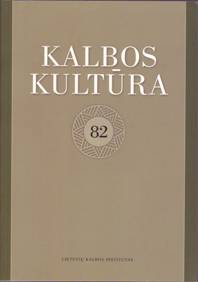Šnekamosios kalbos ir žargoninės leksikos paskirtis viešajame žurnalisto diskurse
The role of colloquial and jargon words in public journalistic discourse
Author(s): Regina KoženiauskienėSubject(s): Baltic Languages
Published by: Lietuvių Kalbos Institutas
Summary/Abstract: The paper discusses colloquial and jargon words used by a famous journalist in political commentaries. It also attempts to identify functions of dispreferred words in public discourse and whether and to what extent they are compatible with standard Lithuanian usage and the ethics of journalists.The author is usually able to distance himself from colloquial and jargon words; he speaks like a stranger, from aside, and gives references to well-known political figures by using elements of their speech (e. g. blin, dzin, išdūrė, tūpas, vsio zakonno). He also adds some such words and expressions of his own accord, e. g. otkatininkai, krūtas, mafiozų šestiorka, keturių banda, apmauti, susimauti, perspjauti, užkalti, vagilka and some other pejorative words and phrases referring to limited intellectual ability of politicians, e.g. svaičioti, vapėti, nuo bėgių nušokęs plumprotis, nebrendyla, debiliškai, kietakaktiškai. The journalist’s lexicon also contains somevivid idioms, like dėti skersą, kabinti makaronus, duoti stogą or colloquial expressions: į cypę įkišti, aplink pirštą apvynioti, špyga taukuota.The journalist admits that in many cases a vivid word or expression is more relevant than a serious political argument. However, the paper focuses on the evaluation of the behaviour and individual actions of politicians expressed by colloquial and jargon words and phrases rather than their vividness or stylistic function. The paper expresses doubts as to the ethical aspects of such vocabulary and its morally negative impact on the society.
Journal: Bendrinė kalba (iki 2014 metų – Kalbos kultūra)
- Issue Year: 2009
- Issue No: 82
- Page Range: 126-137
- Page Count: 12
- Language: Lithuanian

